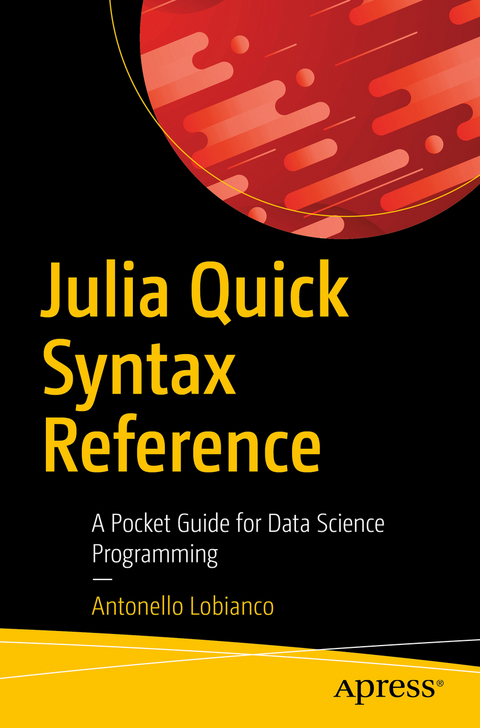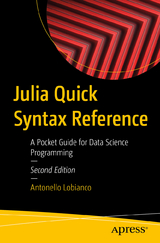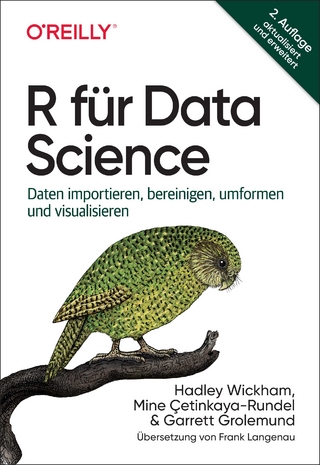
Julia Quick Syntax Reference
Apress (Verlag)
978-1-4842-5189-8 (ISBN)
This book provides an introduction that reveals basic Julia structures and syntax; discusses data types, control flow, functions, input/output, exceptions, metaprogramming, performance, and more. Additionally, you'll learn to interface Julia with other programming languages such as R for statistics or Python. You will learn how to use Julia packages for data analysis, numerical optimization and symbolic computation, and how to disseminate your results in dynamic documents or interactive web pages.
In this book, the focus is on providing important information as quickly as possible. It is packed with useful information and is a must-have for any Julia programmer.
What You Will Learn
Set up the software needed to run Julia and your first Hello World example
Work with types and the different containers that Julia makes available for rapid application development
Use vectorized, classical loop-based code, logical operators, and blocks
Explore Julia functions by looking at arguments, return values, polymorphism, parameters, anonymous functions, and broadcasts
Build custom structures in Julia
Interface Julia with other languages such as C/C++, Python, and R
Program a richer API, modifying the code before it is executed using expressions, symbols, macros, quote blocks, and more
Maximize your code’s performance
Who This Book Is For
Experienced programmers new to Julia, as well as existing Julia coders new tothe now stable Julia version 1.0 release.
Antonello Lobianco, PhD is a research engineer employed by a French grande école (polytechnic university). He works on the biophysical and economic modelling of the forest sector and is responsible for the lab models portfolio. He does programming in C++, Perl, PHP, Visual Basic, Python, and Julia. He teaches environmental and forest economics at undergraduate and graduate levels and modelling at PhD level. For a couple of years, he has followed the development of Julia as it fits his modelling needs. He is the author of a few Julia packages (search sylvaticus on GitHub).
Part 1. Language Core.- 1. Getting Started.- 2. Data Types and Structures.- 3. Control Flow and Functions.- 4. Custom Types.- 5. Input – Output.- 6. Metaprogramming and Macros.- 7. Interfacing Julia with Other Languages.- 8. Efficiently Write Efficient Code.- Part 2. Packages Ecosystem.- 9. Working with Data.- 10. Mathematical Libraries.- 11. Utilities.
| Erscheinungsdatum | 25.11.2019 |
|---|---|
| Zusatzinfo | 66 Illustrations, black and white; XVII, 216 p. 66 illus. |
| Verlagsort | Berkley |
| Sprache | englisch |
| Maße | 155 x 235 mm |
| Themenwelt | Informatik ► Datenbanken ► Data Warehouse / Data Mining |
| Mathematik / Informatik ► Informatik ► Programmiersprachen / -werkzeuge | |
| Informatik ► Theorie / Studium ► Compilerbau | |
| Informatik ► Theorie / Studium ► Künstliche Intelligenz / Robotik | |
| Schlagworte | Analysis • Code • Computer Science • CS • Data Science • Development • Julia • language • Math • programming • Software • source • Statistics |
| ISBN-10 | 1-4842-5189-X / 148425189X |
| ISBN-13 | 978-1-4842-5189-8 / 9781484251898 |
| Zustand | Neuware |
| Haben Sie eine Frage zum Produkt? |
aus dem Bereich



